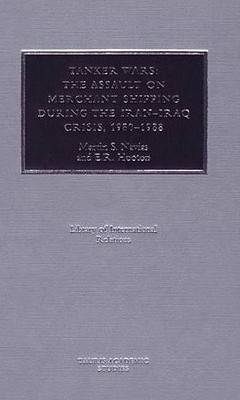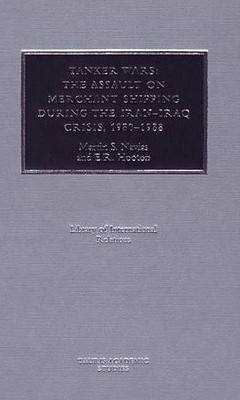
Bedankt voor het vertrouwen het afgelopen jaar! Om jou te bedanken bieden we GRATIS verzending (in België) aan op alles gedurende de hele maand januari.
- Afhalen na 1 uur in een winkel met voorraad
- In januari gratis thuislevering in België
- Ruim aanbod met 7 miljoen producten
Bedankt voor het vertrouwen het afgelopen jaar! Om jou te bedanken bieden we GRATIS verzending (in België) aan op alles gedurende de hele maand januari.
- Afhalen na 1 uur in een winkel met voorraad
- In januari gratis thuislevering in België
- Ruim aanbod met 7 miljoen producten
Zoeken
Tanker Wars
Assault on Merchant Shipping During the Iran-Iraq Crisis, 1980-88
Martin S Navias, E R Hooton
€ 354,45
+ 708 punten
Omschrijving
During the Iran-Iraq war, hundreds of merchant vessels were attacked, more than 400 seamen killed and millions of dollars' worth of damages were suffered by owners, charterers and insurers. In the most sustained assault on merchant shipping since the Second World War, the control of shipping routes, destruction of enemy and enemy-allied ships, and the protection of oil exports, were key objectives. These campaigns touched the economic and security interests of the Gulf states by threatening their exports and highlighting their political and military vulnerability. The ripples of the tanker wars extended well beyond the region with attacks on vessels with foreign flags which invoked international concern and drew in foreign naval forces.
Specificaties
Betrokkenen
- Auteur(s):
- Uitgeverij:
Inhoud
- Aantal bladzijden:
- 256
- Taal:
- Engels
- Reeks:
Eigenschappen
- Productcode (EAN):
- 9781860640322
- Verschijningsdatum:
- 31/12/1996
- Uitvoering:
- Hardcover
- Formaat:
- Genaaid
- Afmetingen:
- 135 mm x 216 mm
- Gewicht:
- 385 g

Alleen bij Standaard Boekhandel
+ 708 punten op je klantenkaart van Standaard Boekhandel
Beoordelingen
We publiceren alleen reviews die voldoen aan de voorwaarden voor reviews. Bekijk onze voorwaarden voor reviews.









